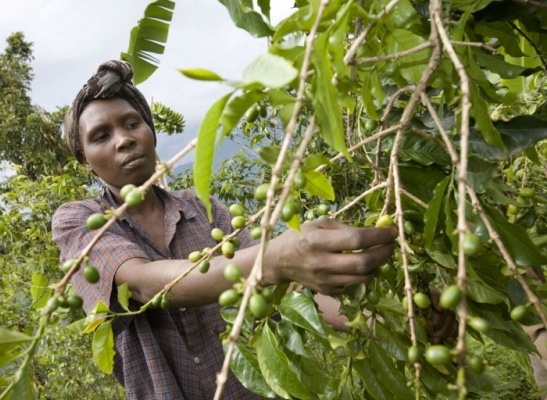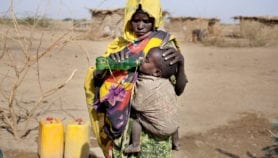By: Dorcas Odhiambo
Send to a friend
The details you provide on this page will not be used to send unsolicited email, and will not be sold to a 3rd party. See privacy policy.
Climate change is affecting coffee growing areas in the East African highlands, leading to decreased yields for farmers.
According to researchers based in Colombia, South Africa and Uganda, coffee supports the livelihoods of 2.4 million people in Tanzania, with the country generating an average earnings of US$100 million a year.
But the researchers add that despite global estimates of the impacts of climate change on coffee widely grown in the world — Coffea arabica — evidence in Tanzania are lacking, thus making it difficult for policymakers to invest in climate change adaptation strategies.
“Farmers may need to diversify into other cash crops, particularly in the lower and warmer areas where coffee is already severely stressed.”
Piet van Asten, International Institute of Tropical Agriculture
The researchers estimated the effect of weather on coffee yields from 1961 to 2012, and projected similar outcome by 2060 using data from the Tanzania Coffee, the Tanzanian National Bureau of Statistics, and global datasets.
“We demonstrate for the first time that increasing night time temperature is the most significant climatic variable responsible for diminishing C. arabica yields between 1961 and 2012,” the researchers write in a study published on 31 March in Agricultural and Forest Meteorology.
The researchers add that an increase of one degree Celcius in night temperature led to decreased coffee yields of 120-154 kilograms a hectare.
This is the first on-the-ground evidence that climate change is already having an impact on coffee, says Piet van Asten, a co-author and International Institute of Tropical Agriculture country representative in Uganda and agronomist working on sustainable intensification of cropping systems.
According to the researchers, without innovative climate adaptation strategies, coffee production in Tanzania could decrease to 104-186 kilogram a hectare by 2060.
In view of their findings, Asten says that Arabica farmers have to adapt to climate change, and some may have to switch to other varieties.
“We may need some better pest, disease and heat-tolerant Arabica varieties, for instance, Catimors. Farmers may need to diversify into other cash crops, particularly in the lower and warmer areas where coffee is already severely stressed,” he says.
Asten recommends good management practices such as pruning, fertilisers use, good shade systems and adapted varieties to help overcome some of the stresses and subsequent yield losses.
Karoli Njau, an environmental engineering professor at the Nelson Mandela African Institution of Science and Technology in Arusha, Tanzania, says people around the slopes of Africa’s tallest mountain in the country — Kilimanjaro — where he grew up are witnessing decline in production and are abandoning coffee farming.
“There must be a big climatic change for this to happen over that past six years,” he says.
“Kilimanjaro has suffered a lot because of declining coffee production,” he says.
Henry F. Mahoo, an associate professor at the Sokoine University of Agriculture, Morogoro, Tanzania, tells SciDev.Net that research in other parts of the region is needed to confirm the results.
If new research “proves to be similar, then we need to look for alternative crops that will perform well under these new climatic conditions. Crop breeders and scientists should take the lead on this front,” Mahoo adds.
This article has been produced by SciDev.Net's Sub-Saharan Africa desk.
References
Alessandro C.W Craparo and others Coffea arabica yields decline in Tanzania due to climate change: Global implications (Agricultural and Forest Meteorology, 31 March 2015)














